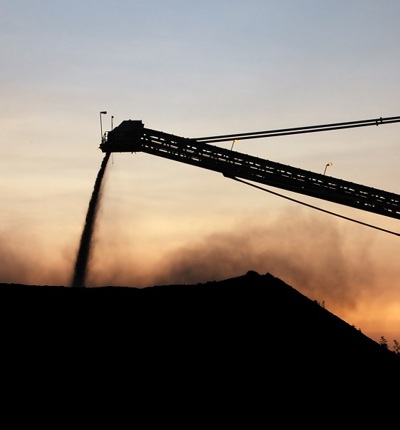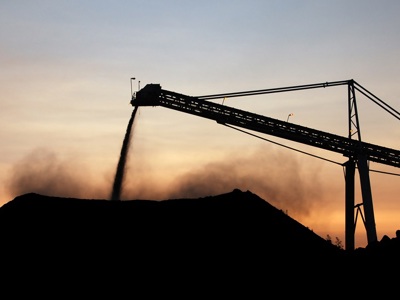
UN working group addresses risks from multinationals using military and security to protect their operations to extract natural resources
Alex Wessely from Leigh Day’s international team attended an event in Geneva which examined the risks multinational companies are exposed to if human rights abuses are committed in connection with protecting their operations, especially at large scale mining sites.
Posted on 26 September 2025
On Thursday 19 September, I travelled to Geneva to attend a side event at the 60th session of the Human Rights Council, hosted by the UN Working Group on the Use of Mercenaries and TRIAL International, entitled “Safeguarding Human Rights in complex environments: Addressing the use of military and security enterprises in protection, exploitation and conservation of natural resources”. The event was a timely reminder of the legal, financial and reputational risks that multinational companies are exposed to if human rights abuses are committed in connection with their operations, especially at large scale mining sites.
The side event heard from five distinguished speakers, representing civil society organisations TRIAL International, the International Code of Conduct Association (“ICOCA”), Observatoire d’Etudes et d’Appui à la Responsabilité Sociale et Environnementale, International Peace Information Service (“IPIS”), as well as the Working Group’s own chairperson, Jovana Ranito.
Williamson Diamond Mine
While Jamie Williamson of ICOCA made clear that security-related issues can impact on any sector, the focus of the working group’s side event was on the extractive industry and, in particular, the mining sector.
One case study that was repeatedly referred to was that of the Williamson Diamond Mine in Tanzania, where I was part of the team who represented 96 individuals in claims alleging serious human rights abuses in 2021.
This case settled (on a no admissions basis) with the company agreeing to a creative and wide-ranging package of restorative justice measures, aimed at mitigating the root causes of conflict between the Mine and its surrounding community:
- Settlement reached with Petra Diamonds over claims of human rights abuses
- Settlement agreed with Petra Diamonds Ltd for alleged victims of sexual abuse
A key feature of the Williamson Diamond Mine case was alleged abuses being committed by the Mine’s security contractors, Zenith Security. As the speakers from both IPIS and ICOCA explained, when, after the case, Zenith Security were replaced with a properly trained and regulated security contractor, the number of alleged abuses connected with the Mine plummeted – described by Hans Merket of IPIS as a “sea change”.
IPIS have long been following the situation at Williamson Diamond Mine, both before and after the Leigh Day case.
Equally as relevant, according to Jamie Williamson of ICOCA, where there are proven allegations of misconduct, then under the new era at the Williamson Mine, the perpetrators of misconduct are properly held to account.
This is, in Leigh Day’s experience, a rarity. When security providers commit disproportionate violence against our clients, often perpetrators are not identified and not punished, leading to a culture of impunity. This in turn exacerbates the mistrust and conflict that exists between the multinational company and rightsholders in the surrounding community – not least if wronged individuals have no local means of obtaining remedy.
Indeed, Chiara Gabriele of TRIAL International emphasised the importance of providing effective remedy to victims of security-related human rights, both through effective grievance mechanisms but also litigation if necessary.
Public vs Private Security
The speakers also spoke to the reliance by multinational companies on public security guards (i.e. police officers), in support of – or, even instead of – private security. ICOCA argued that to compartmentalise and isolate public and private security is a common mistake by multinational companies, as, instead, public and private security must be integrated to best protect the multinational’s asset and the needs of the local community.
Mr Williamson highlighted the Geita Gold Mine in Tanzania as an example where public and private security have been properly integrated.
Mr Merket of IPIS commented how some companies may see a “perverse incentive” in relying on public security rather than private security, in a – misguided – attempt to create distance between the company and allegations of human rights abuse. He explained how this is a short-sighted ‘fix’ to security related issues, as companies who rely on violent police forces while trying to keep them at arms’ length, will further deepen the mistrust between the company and its neighbours.
The notion that mining companies cannot be liable for the unlawful acts of the police is a common misunderstanding of the judgment of Mr Justice Turner in Kalma v African Minerals Limited, a Leigh Day case.
Turner J found that African Minerals Limited were not liable for widespread unlawful violence caused by the Sierra Leonean Police in two separate incidents in 2010 and 2012. The reason for this finding was, in summary, that Turner J did not agree that the company had sufficient control over the police, despite providing them with vehicles, food, accommodation and cash.
However, the police who committed the violence were a force from out of town; called in specially to deal with two unfolding incidents of civil disobedience.
Turner J specifically noted, at paragraph 330 and 372 of his judgment, that if the violence had instead been committed by police officers permanently stationed at the Mine, then the legal situation could have been different.
This finding means that if companies rely on public security as part of their own front-line security apparatus, then the company may well be liable for abuses committed by those particular officers.
Conclusion
Alleged violence by private military and security companies (“PMSCs”) is a common feature of many of Leigh Day’s international cases. The Working Group is doing vital work drawing attention to multinational companies’ reliance on PMSCs when exploiting natural resources across the World.
To read Leigh Day’s submission to the Working Group on the use of PMSCs as proxies, enablers and facilitators, please see here.




